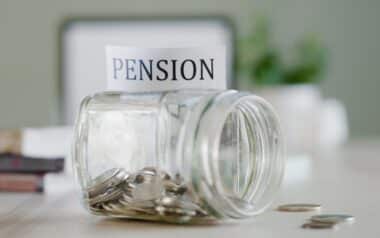Millions of retirees in the UK are set to be dragged into paying income tax on their state pensions as early as April 2026, as frozen tax thresholds collide with the rising value of the state pension. New forecasts suggest that the triple lock system, which determines pension increases, will push payments beyond the frozen personal allowance, forcing an estimated nine million pensioners into paying tax on their retirement income.
The situation, which has been labelled “Labour’s retirement tax”, is the result of an ongoing freeze on the income tax personal allowance, a policy originally introduced by former Conservative Chancellor Jeremy Hunt and now maintained by Labour’s Rachel Reeves until 2029. With pension payments increasing and the tax-free allowance staying fixed at £12,570, experts warn that more and more retirees will be pulled into the tax system each year.
Triple Lock Rise to Push Pensioners Over Tax Threshold
The triple lock mechanism, which guarantees that the state pension increases each year by the highest of inflation, average wage growth, or 2.5%, has long been a safeguard for pensioners against the rising cost of living. However, with tax bands frozen, these increases now mean that the full new state pension is set to breach the tax-free personal allowance for the first time in 2026.
According to Deutsche Bank, the triple lock is on course to increase pensions by 5.5% next year, taking the full annual state pension to £12,631—£61 over the current tax-free threshold. This means that, unless tax bands are changed, millions of pensioners will face a tax bill on their state pension for the first time.
Sanjay Raja, the bank’s chief UK economist, confirmed these projections, stating:
“As of right now, our projection for AWE (average weekly earnings) in the three months to July sits at 5.5% year on year. Our September 2025 CPI projection sits just around 4.25%. Therefore, based on our current projections, we see state pensions rising by 5.5% in April 2026.”
How Much Will Pensioners Pay?
While the initial tax bill for 2026 is expected to be small—just £12 per year, it marks the beginning of a long-term shift that could see state pensions taxed more heavily in the coming years. Analysts warn that pensioners may not even realise they owe tax, as HM Revenue & Customs (HMRC) will only inform them after the tax year ends.
Sir Steve Webb, a former pensions minister, cautioned that many retirees could be caught off guard by the new tax obligations:
“Pensioners may well have spent the money because the bill isn’t known until after the tax year, so people will have to set aside a bit of their pension. We’re not talking about rich pensioners.”
Labour’s Tax Policies Under Fire
The issue of pension taxation became a heated political debate in the run-up to the last general election. Rishi Sunak’s Conservative Party had warned that Labour’s policies would create a “retirement tax” on state pensioners’ income. The Tories proposed a “triple lock plus” policy, which would have ensured that tax-free allowances increased in line with state pension growth, preventing pensioners from being pulled into taxation. However, Labour dismissed the idea as “not credible” at the time.
Rachel Reeves has since promised that tax thresholds will start rising with inflation from April 2028, but economic uncertainty has raised doubts about whether the government can afford to deliver on this commitment. Poor growth figures and reduced fiscal headroom have made it more difficult for Labour to introduce significant tax cuts.
Millions More Pensioners Could Face Tax Bills by 2032
The problem is expected to worsen over the next decade. Previous analysis by pension consultancy LCP found that a quarter of a million pensioners are already paying four-figure tax bills on their state pension. Their research also suggests that if tax thresholds remain frozen, a further 10 million pensioners will be paying income tax by 2032.
Despite the growing concerns, the Treasury insists that the government remains committed to supporting pensioners. An HM Treasury spokesperson said:
“The state pension is the foundation for ensuring pensioners are able to live with the dignity and respect they deserve. We are committed to the triple lock, and pensioners whose sole income is the new state pension and who have not deferred or receive protected payments do not pay any income tax.”
However, critics argue that this does little to address the underlying issue, as the number of pensioners exceeding the tax threshold is set to increase sharply.









